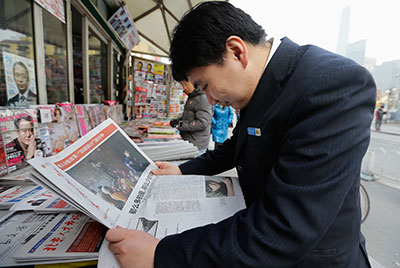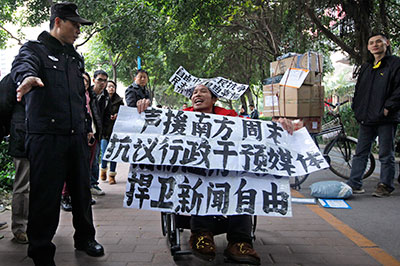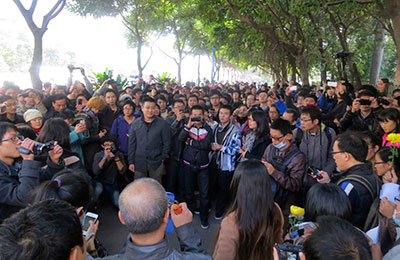China decrees use of foreign news must be approved
You have to wonder how this will be enforced, but China’s State Administration of Press Publication, Radio, Film and Television has issued a “Notice on Strengthening Control of Media Personnel’s Online Activities” (关于加强新闻采编人员网络活动管理的通知). Chinese media organizations have been told to stop posting foreign media news without government permission: “Without authorization, no kind of media outlets shall arbitrarily…

Zeng Li: A rueful look at how censorship works in China
Three days into his retirement, Zeng Li (曾礼) died yesterday at age 61, apparently of intestinal bleeding. Surprisingly, his March 28 farewell letter has spread across China’s social media sites and blogs. The letter is an apology, an explanation of sorts, and an admission of regret regarding the latter part of his career. Zeng served…

Drawing lessons from Chinese attacks on US media
Not every media company is as tempting a target for hackers as The New York Times, The Washington Post, or The Wall Street Journal. Not every company can afford high-priced computer security consultants, either. Is there anything that everyday reporters and their editors can learn about protecting themselves, based on the revelatory details the Times…
NYT reports Chinese hacking: one battle in large war
The New York Times reported Thursday that, after four months, it has expelled what it believes to be China-based hackers from its computer system and has, so far, kept them from breaking back in. The paper said a group had been “infiltrating its computer systems and getting passwords for its reporters and other employees.” The…
Jailed Tibetan filmmaker shifted to better conditions
Some news which appears to be good from China, and some that isn’t: Tibetan filmmaker Dhondup Wangchen has been moved to a women’s prison where conditions are not as harsh, according to his friends and associates at the Switzerland based group Filming for Tibet. They say that Wangchen has been transferred to the Qinghai Provincial…

In Southern Weekly versus censors, cautious optimism
There is cautious optimism among China media watchers this morning over the news that a deal has been struck between censors and protesting journalists at China’s Southern Weekly news magazine, which is also known as Southern Weekend. The journalists will not face reprisals for their protest, and propaganda authorities will not repeat the editing stunt…

In China, rebellion grows over Southern Weekly
In the past few days, Chinese journalists and their supporters have launched startlingly direct opposition to Communist Party rule, protesting a heavy-handed move by Guangdong’s provincial propaganda department to unilaterally replace a Southern Weekly editorial on constitutionalism with pro-Party bromides. Defying censors’ directives, media organizations around the country continue to post messages of support of…

Southern Weekly journalists air anger with Chinese censors
Staffers at the Guangdong-based Southern Weekly magazine have publicly expressed their outrage at the heavy handed intervention of propaganda officials who unilaterally rewrote a New Year’s editorial calling for improved constitutional rule in China. A piece extolling the virtues of the Communist Party ran in its place. Sixty staffers posted an open letter to the provincial government…

